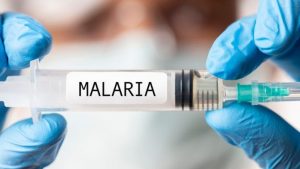R21/Matrix M:

A malaria vaccine candidate has shown promise in phase 2b clinical trials, with high efficacy at 77%. The results of the trial were published recently in preprints with The Lancet.
- The new vaccine candidate, called R21/Matrix M, is a modified version of RTS, S — another candidate against malaria that has been in development for more than 30 years by Walter Reed Institute of Research, GlaxoSmithKline and Bill and Melinda Gates Foundation with the PATH Malaria Vaccine Initiative.
- This vaccine is designed to stop the Plasmodium falciparum malaria parasite from entering the liver and preventing the subsequent deadly blood stages. It targets the liver stage protein of the Plasmodium falciparum life cycle.
- Thirty years in the making, RTS,S is the first, and to date the only, vaccine to reduce malaria in children. But it is not highly efficacious.
The new version:
- R21/Matrix M has been developed by scientists at the University of Oxford, the same location where the AstraZeneca Covid-19 vaccine was developed.
- They have been working on this version for almost 6-7 years now.
- This vaccine was produced in the Serum Institute of India.




